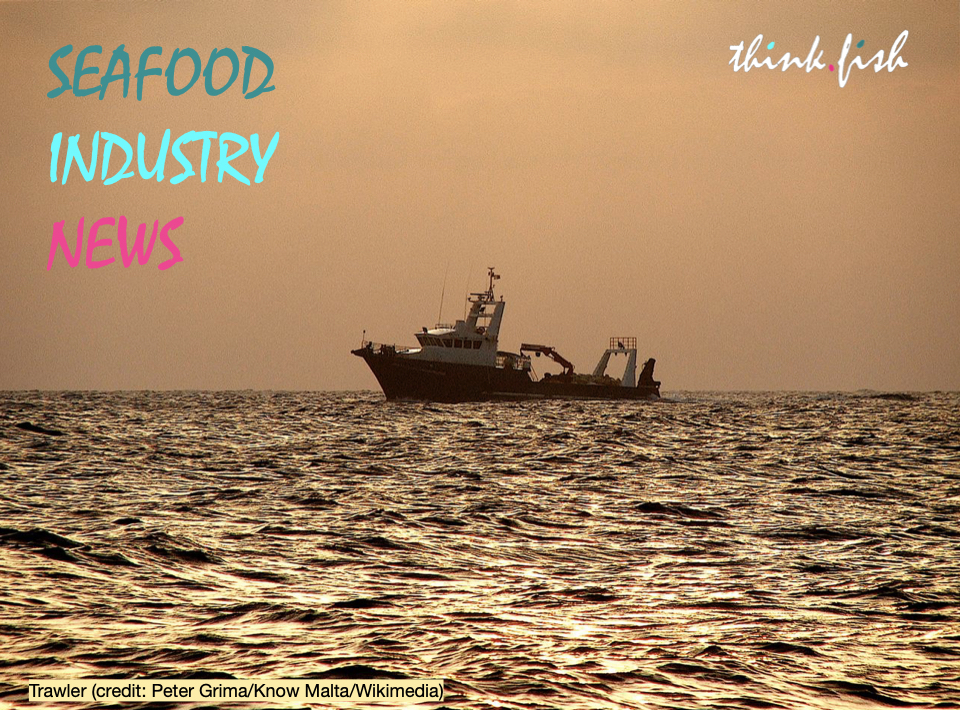#1: Fish farming on ships
Due to the continued growth of aquaculture, the available space for new breeding sites is becoming scarce, both on land and along the coast. A Chinese company has just converted an old cargo ship into a floating fish farm and is promoting this as a more cost-effective alternative to land-based salmon farming [1]. European fishing companies are also planning to use ships for fish farming in order to circumvent delays in the approval of offshore sites and in view of China’s progress [2]. However, it is questionable whether fish farming on ships far away from the public eye is more sustainable and, above all, more respectful towards animals
[1] https://www.seafoodsource.com/news/aquaculture/chinese-tanker-converted-into-mobile-salmon-farm-offers-alternative-model-to-traditional-land-based-operations
[2] https://www.undercurrentnews.com/2025/09/08/western-firm-bets-on-vessel-aquaculture-to-bypass-offshore-permits-as-china-races-ahead/
—
#2: Aquaculture versus fisheries in Chile
The large salmon farming industry in southern Chile and the dominance of seven families in the Chilean fishing industry have long been a threat to artisanal fishermen and coastal communities. Following a public participation process to gather proposals to address the problem, the Chilean government proposed a reform of the fisheries law and a new law on aquaculture. But big industry appears to be successfully lobbying to water down the new laws.
[3] https://www.ecoceanos.cl/2025/02/new-fishing-legislation-in-chile-the-mother-of-all-battles/
[4] https://www.seafoodsource.com/news/aquaculture/chilean-momentum-toward-establishing-general-aquaculture-law-cools-off
—
#3 Chile again: authority closes two farming sites
The country’s environmental supervisory authority has ordered Cooke Aquaculture to close two of its centres and pay a fine of €1.2 million. The allegations against the Canadian company include the violation of the maximum production volume and aquaculture concession area, as well as failing to have plans in place to prevent and deal with accidents such as oil spills or damage to wildlife.
—
#4: China looting distant fish stocks for feed
Chinese fish farming industry is hungry for fish meal, and West African coastal countries can tell you a thing about it [6]. Now it’s the turn of Pakistan’s fish stocks to be processed into fish meal. A joint venture between a Pakistani and a Chinese company is investing USD 12,000 in a fish meal factory on the coast of Balochistan, sourcing its raw material from the Arabian Sea. The framework for this is Pakistan’s plan to export seafood worth USD 600 million per year [7].
[6] https://blog.think.fish/?p=1296
[7] https://icsf.net/newss/pakistani-chinese-firms-to-invest-12-million-in-fishmeal-plant-at-gwadar-port/
—
#5: For fairer fisheries agreements between the EU and coastal states in the Global South
In July, the European Commission launched a consultation on its ‘EU Strategy for Fisheries External Action’, i.e. on what European fishing vessels do in foreign waters and how these countries are compensated for allowing parts of their fish stocks to be fished by European vessels, as agreed between these countries and the EU in so-called ‘partnership agreements’.
One might well ask what European industrial trawlers are doing in distant waters after successfully decimating European fish stocks [8]. The Coalition for Fair Fisheries Agreements (CFFA) does not go that far, but in a statement [9] to the EU Commission that is well worth reading, it raises important points and calls for a ’strategy that looks into policy coherence for development, including a focus on food security, the importance of participation of stakeholders and of including human rights safeguards‘.
[8] https://blog.think.fish/?p=1296
[9] https://www.cffacape.org/publications-blog/strategy-eu-fisheries-external-action


Schreibe einen Kommentar
Du musst angemeldet sein, um einen Kommentar abzugeben.